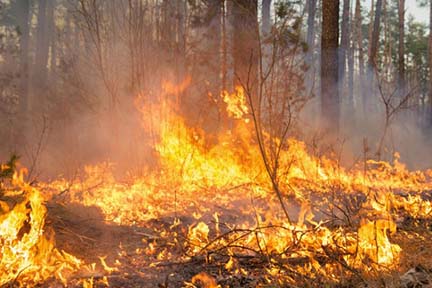FOR IMMEDIATE RELEASE
June 28, 2024
EGLE Media Office, [email protected], 517-284-9278
EGLE announces $12.6 million in MI Clean Water grants to help communities upgrade water infrastructure, protect health & environment
A new water well in the Upper Peninsula and grants to assist 28 communities with planning for water system upgrades including lead service line replacements are among $12.6 million in state grants recently awarded to Michigan cities, villages, and townships to protect public health and Michigan’s water resources.
The MI Clean Water Plan grants through the Drinking Water State Revolving Fund (DWSRF), Clean Water State Revolving Fund (CWSRF), and support from the federal American Rescue Plan Act (ARPA) aim to help communities upgrade aging infrastructure, ensure healthy drinking water, and protect Michigan’s environment.
Seventy percent of Michiganders are served by more than 1,000 community wastewater systems and a similar percentage get drinking water from community water systems. Those systems often struggle to find resources to address legacy issues like aging drinking water and storm water facilities and emerging challenges like new standards for per- and polyfluoroalkyl substances (PFAS) “forever chemicals.”
Governor Gretchen Whitmer, the Michigan Legislature, and federal agencies have ramped up funding for aging water infrastructure – a critical move to help ensure those water systems continue to protect public health and the environment, including Michigan’s unmatched freshwater resources.
More than half of EGLE’s budget has traditionally passed through to Michigan cities, towns, villages, and other local government agencies to finance critical improvements that help them better protect residents and our natural resources.
“Surrounded by 20 percent of the planet’s fresh surface water, Michigan is blessed to have quality streams, lakes, and groundwater providing drinking water for 10 million residents,” said Phil Roos, EGLE director. “Maintaining modern, efficient treatment systems is vital to ensuring that Michiganders’ health is protected. These grants help communities meet that challenge.”
Grant roundup
Recent grants through the Drinking Water State Revolving Fund (DWSRF):
- Negaunee/Ishpeming Water Authority for $930,000. This involves constructing a new drinking water production well. The project also includes constructing a new wellhouse with supervisory control and data acquisition and an associated control system, installing a potassium permanganate treatment system, and installing approximately 5,400 feet of transmission piping to connect the new well to the existing system. The water authority will abandon the existing well once the new well is operational.
Affordability and Planning Grants:
These grants provide funding to assist communities in planning and affording water infrastructure needs statewide.
- City of Saline: $81,000
- City of Muskegon: $122,500
- City of Detroit: $500,000
- Village of Hillman: $ 90,000
- City of Ecorse: $500,000
Technical, Managerial, and Financial grants:
Twenty-three water systems received grants for work in identifying or verifying lead service lines in preparation for replacement. The process to accomplish this effort includes hydrovacing on either side of each curb stop and performing in-building investigation to document service line materials. This project includes applicable restoration to original condition of hydrovaced locations. Hydrovacing involves a piece of equipment using high-pressure water to cut and liquefy the soil, while simultaneously using a high-volume vacuum to remove the soil from the excavation.
The recipients and their respective amounts:
- City of Munising: $319,830
- City of Eaton Rapids: $564,000
- Village of Romeo: $334,100
- Village of Grosse Pointe Shores: $342,700
- City of Galesburg: $600,000
- Village of Beverly Hills: $350,900
- City of East Jordan: $537,189
- City of Marysville: $589,900
- City of Gaylord: $252,163
- Village of Kalkaska: $372,049
- City of North Muskegon: $599,680
- City of Southfield: $555,700
- Clair Township: $366,764
- City of South Lyon: $384,530
- City of Northville: $600,000
- City of Ludington: $600,000
- Village of Augusta: $404,600
- Village of Blissfield: $483,000
- City of Clawson: $600,000
- City of Sylvan Lake: $264,900
- City of Manistique: $423,617
- Village of Waldron: $292,550
- City of Berkley: $570,900
Descriptions of funding sources
Drinking Water State Revolving Fund: Low-interest loan program to help public water systems finance the costs of replacement and repair of drinking water infrastructure to protect public health and achieve or maintain compliance with federal Safe Drinking Water Act requirements. The DWSRF provides loans to water systems for eligible infrastructure projects. As water systems repay their loans, the repayments and interest flow back into the DWSRF to support new loans. ARPA funding operates as a grant and may be used in combination with loan dollars to reduce the financial burden on communities to pay for capital improvement debt. ARPA funded grants awarded this fiscal year: $218,398,719.
Clean Water State Revolving Fund: Used by local municipalities to finance construction of water pollution control projects. These projects include wastewater treatment plant upgrades and expansions, combined or sanitary sewer overflow abatement, new sewers designed to reduce existing sources of pollution, and other publicly owned wastewater treatment efforts that improve water quality. The CWSRF can also finance storm water infrastructure projects to reduce nonpoint sources of water pollution caused by things like agricultural runoff to lakes, streams, and wetlands. As with the DWSRF, ARPA funds can be used in conjunction with CWSRF loan dollars, thereby reducing the debt communities pay for infrastructure improvements. ARPA-funded grants awarded this fiscal year: $137,982,009.
Drinking Water Asset Management Program: Provides grant funding to assist drinking water suppliers with asset management plan development and updates, and/or distribution system materials inventories as defined in Michigan’s revised Lead and Copper Rule. Awarded this fiscal year: $19,695,817.
Consolidation and Contamination Risk Reduction Program: Established to aid drinking water systems to help remove or reduce PFAS or other contaminants. Awarded this fiscal year: $20,336,215.
Substantial Public Health Risk Project Program: Protects public and environmental health by removing direct and continuous discharges of wastewater from surface water or groundwater. Awarded this fiscal year: $8,000,000.
Emerging Contaminants in Small or Disadvantaged Communities Grant Program: Provides states and territories with grants to public water systems in small or disadvantaged communities to address emerging contaminants, including PFAS.
Technical, Managerial, and Financial Grants: Funds for work related to the physical verification of service lines at properties where lead is suspected but not confirmed or where service line material is unknown but likely contains lead.
Affordability and Planning Grants: These grants are designed to assist communities in planning and affording water infrastructure improvements including lead service line replacements.
Additional Background
Since January 2019 the State of Michigan has invested over $4 billion to upgrade drinking water, storm water, and wastewater facilities across the state, supporting over 57,000 jobs.
- In 2022, Governor Whitmer signed a package of bills to help communities access funding for water infrastructure.
|



